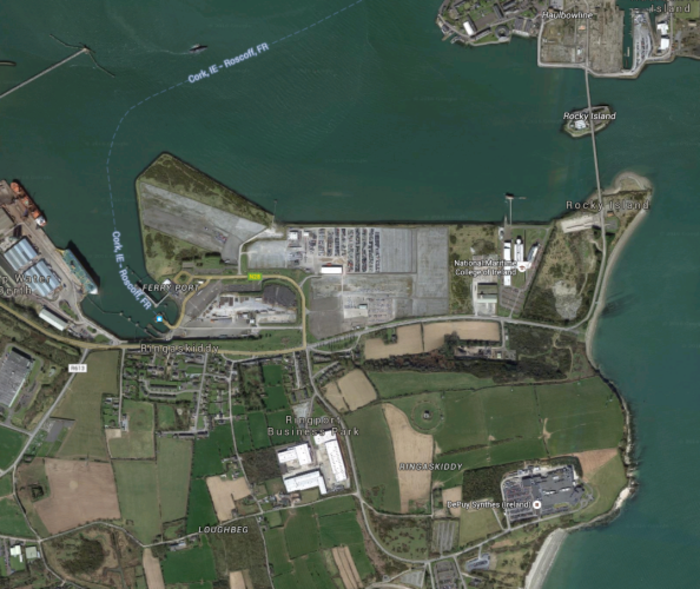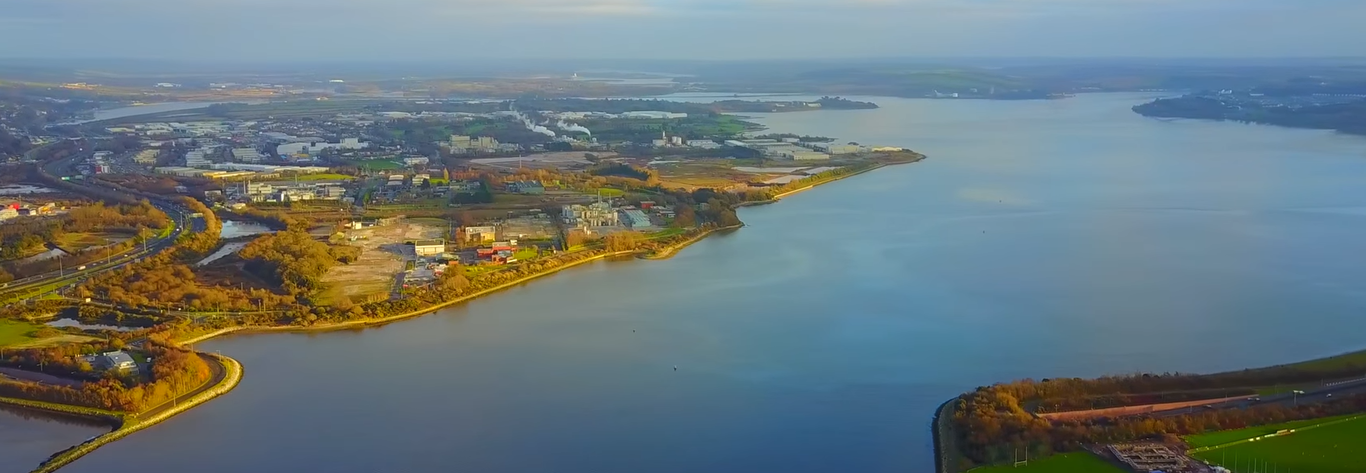Timeline: The 17-year battle over plans for a huge incinerator at Cork Harbour
A Belgian company wants to burn waste in Ringaskiddy, but locals have fought every step of the way.
ANOTHER DAY, ANOTHER planning battle that’s dragged on for years.
So goes the saying in Fora HQ at the moment. After taking a look at the three-year battle Apple has faced in its efforts to build a data centre in Athenry, we decided to investigate an even longer-running saga – that of the Indaver incinerator at Cork Harbour.
The facility will be one of the biggest infrastructure projects to be built in Cork for years – if it ever goes ahead.
The incinerator is expected to cost €240 million to build and be able to burn hundreds of thousands of tonnes of waste a year.
Proponents say it is vital to help get rid of the waste that Irish people produce; those against the project say that it will be an environmental hazard to those living and working nearby.
The project has been stuck in planning for 16 years. After three delays, a final planning decision is due this month. In advance of that anticipated ruling, here’s an overview of what has happened with the project so far:
April 2001
It is announced that Belgian hazardous waste management company Indaver is to apply for planning permission to build an incinerator at Ringaskiddy in Cork Harbour.
Locals and some politicians, such as the Green Party, immediately opposed the plan. Around the same time Indaver applied to Meath County Council to build a waste plant and incinerator at Duleek.
January 2002
Cork County Council confirms it has received 4,000 objections to the Ringaskiddy incinerator.
June 2002
Permission for the incinerator is granted by the council, but this is appealed to An Bord Pleanála.
 The location of the proposed incinerator
The location of the proposed incinerator
March 2003
The Meath plant is approved, the first incinerator in the state to receive planning permission.
January 2004
An Bord Pleanála gives the go-ahead for the Cork incinerator.
April 2004
Anti-incinerator campaigners seeking to overturn the decision apply to the High Court for a judicial review.
November 2005
Councillors at Cork County Council vote to oppose the development of the incinerator.
November 2007
A High Court action against the Meath incinerator fails. The legal challenge to the Cork incinerator also fails in February 2008, with the judge citing the court’s decision in the Meath case.
February 2009
Indaver wants to expand on its plans for the Cork incinerator, however it has to go through An Bord Pleanála to do so. The body says it has concerns over flooding, coastal erosion and emissions.

August 2010
Indaver submits a revised plan for the incinerator, with the hope that this will be approved by the planning body. Campaigners say it should have to submit a new application.
June 2011
An Bord Pleanála refuses permission for the incinerator. Local residents celebrate the result, while Indaver says the reasons for the refusal can be addressed and it still wants to build the incinerator.
March 2012
Indaver appeals to the High Court, challenging An Bord Pleanála’s decision.
October 2012
Indaver drops the High Court appeal, but vows to submit a new planning application for the incinerator.
January 2016
It is confirmed that Indaver is submitting a new application to build the incinerator. Again, locals and campaigners vow to fight against it.
April 2016
Cork county councillors again vote to oppose the incinerator. At the same time, senior council officials say that the revised incinerator plans are acceptable. This is appealed to An Bord Pleanála.
July 2016
A final decision on the project, which had been due, is postponed.
October 2016
The decision is delayed again. It is then postponed again several times: in January 2017, March, August and September. The latest due date for a decision is later this month.






